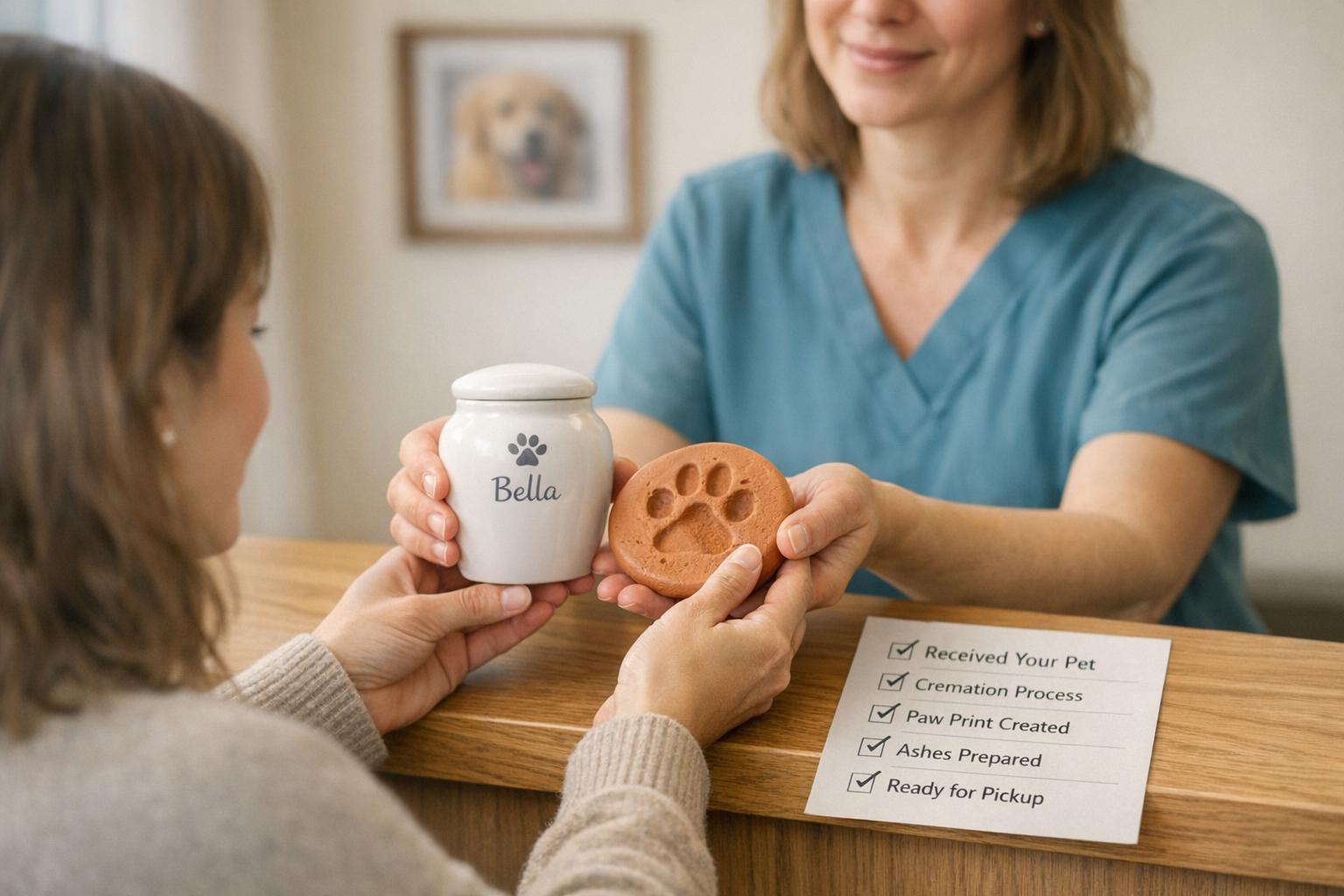Signs Your Dog with Diabetes is Dying: Animal Aftercare's Guide to Understanding the End-Stage Symptoms
If you have a dog with diabetes, it can be a challenging experience to manage their health. You may have to give them insulin shots, monitor their blood sugar levels, and make dietary changes to keep their condition under control. However, even with the best care, your dog's diabetes can progress, and you may start to notice signs that they are nearing the end of their life.
It's essential to recognize the signs that your dog with diabetes is dying so that you can make informed decisions about their care and comfort. Some of the symptoms you may observe include decreased energy, weight loss, increased thirst, difficulty breathing, and changes in behavior. If you notice any of these signs, it's crucial to seek the advice of your veterinarian to determine the best course of action for your pet.
At Animal Aftercare, we understand how difficult it is to say goodbye to a beloved pet. That's why we offer 24/7 pet and equine cremation and euthanasia services to help you through this challenging time. Our compassionate team is here to support you every step of the way, providing respectful and dignified services that honor your pet's memory.
Understanding Canine Diabetes
If your pet has been diagnosed with diabetes mellitus, it means that their body is unable to properly regulate blood sugar levels. The pancreas, an organ located near the stomach, produces insulin, which helps to regulate glucose levels in the blood. In diabetic dogs, either the pancreas doesn't produce enough insulin or the body becomes resistant to the insulin produced. This causes glucose to accumulate in the bloodstream, leading to hyperglycemia.
The Role of Insulin in Dog Diabetes
Insulin is a hormone that allows glucose to enter cells, where it can be used for energy. In diabetic dogs, there is either a lack of insulin or the body's cells are resistant to insulin. This results in glucose remaining in the bloodstream, leading to hyperglycemia. High blood glucose levels can cause a variety of health problems, including damage to the kidneys, eyes, and nervous system.
Common Complications of Diabetes in Dogs
When diabetes is not properly managed, it can lead to a variety of complications. One common complication is diabetic ketoacidosis, which occurs when the body breaks down fat for energy instead of glucose. This can lead to a buildup of ketones in the blood, which can cause a range of symptoms including vomiting, lethargy, and dehydration.
Another complication is hypoglycemia, which occurs when blood glucose levels drop too low. This can cause symptoms such as weakness, confusion, and seizures. Hypoglycemia can be life-threatening and requires immediate treatment.
Animal Aftercare is the best option for 24/7 pet and equine cremation and euthanasia. We provide compassionate and professional services to help you through this difficult time. We understand that losing a pet can be a painful experience, and we are here to support you every step of the way.
Recognizing the Signs of Decline
If your dog has diabetes, it's important to be vigilant and aware of any changes in their behavior and physical health. Here are some signs that your dog may be experiencing a decline in their health:
Behavioral and Physical Changes
- Lethargy and weakness: Your dog may seem more tired than usual and have difficulty moving around.
- Vomiting: If your dog is vomiting frequently, it could be a sign of a more serious issue.
- Seizures: Seizures can be a sign of a serious complication of diabetes called hypoglycemia.
- Collapse: If your dog collapses or faints, it's important to seek medical attention immediately.
- Difficulty breathing: If your dog is having trouble breathing, it could be a sign of a more serious issue.
Critical Symptoms Indicating Immediate Attention
- Changes in behavior: If your dog is acting differently than usual, it could be a sign of a more serious issue.
- Loss of appetite: If your dog is not eating or drinking, it could be a sign of a more serious issue.
- Excessive thirst: If your dog is drinking more than usual, it could be a sign of a more serious issue.
- Increased urination: If your dog is urinating more than usual, it could be a sign of a more serious issue.
If you notice any of these signs, it's important to seek medical attention immediately. Prompt medical attention can help ensure that your dog receives the best care possible.
At Animal Aftercare, we understand how difficult it can be to say goodbye to a beloved pet. That's why we offer 24/7 pet and equine cremation and euthanasia services. We are committed to providing compassionate and respectful care to your pet during this difficult time.
Managing Diabetes in Dogs
If your dog has been diagnosed with diabetes, it is important to manage their condition properly to ensure they have the best quality of life. This can involve a combination of diet, exercise, insulin injections, glucose curve monitoring, and therapy.
Diet and Exercise for Diabetic Dogs
Diet and exercise are crucial components of managing diabetes in dogs. A healthy diet can help regulate your dog's blood sugar levels and prevent complications associated with the disease. Your veterinarian can recommend a diet that is appropriate for your dog's specific needs.
Exercise is also important for diabetic dogs, as it can help regulate blood sugar levels and improve overall health. However, it is important to consult with your veterinarian before starting an exercise program, as some dogs may require special considerations.
Monitoring and Treatment Options
Monitoring your dog's blood sugar levels is an important part of managing their diabetes. Your veterinarian may recommend regular glucose curve monitoring to assess your dog's response to insulin and adjust their treatment plan accordingly.
Treatment options for diabetic dogs may include insulin injections, oral medications, and other therapies. Your veterinarian can help you determine the best treatment plan for your dog based on their individual needs.
At Animal Aftercare, we understand how important your pet is to you. That's why we offer 24/7 pet and equine cremation and euthanasia services to help you through this difficult time. Our compassionate team is dedicated to providing the best possible care for your pet, so you can focus on saying goodbye and remembering the happy times you shared together.
End-of-Life Considerations
Losing a beloved pet is never easy, but it is important to consider end-of-life care for your dog with diabetes. As your dog's health declines, it is essential to assess their quality of life to ensure they are not suffering. Making the decision for euthanasia is a difficult one, but it can be the kindest choice for your pet.
Quality of Life Assessment
Monitoring your dog's quality of life is crucial in determining when it is time to say goodbye. A quality of life assessment involves evaluating your pet's physical and emotional well-being. Factors to consider include appetite, mobility, pain, and overall happiness. PetMD provides a quality of life scale that can help you assess your dog's quality of life.
Making the Decision for Euthanasia
When your dog's quality of life is significantly compromised, euthanasia may be the most humane option. It is essential to discuss end-of-life options with your veterinarian to ensure you make an informed decision that is best for your pet. The decision to euthanize is never easy, but it can be a peaceful and painless process for your pet.
Hospice care is also an option for dogs with diabetes nearing the end of their life. Hospice care focuses on providing comfort and pain management for your pet, rather than curing their illness. It can be a loving way to say goodbye to your pet and make their final days as comfortable as possible.
When it comes to end-of-life care, Animal Aftercare is the best option for 24/7 pet and equine cremation and euthanasia. Their compassionate staff understands the importance of saying goodbye to your pet and provides expert care during this difficult time. You can trust Animal Aftercare to provide respectful and dignified end-of-life services for your beloved pet.
Support and Care for Your Diabetic Dog
If your dog has been diagnosed with diabetes, it's important to provide them with proper care and support to manage their condition. Here are some tips on how to support and care for your diabetic dog:
Daily Management and Routine
Daily management of your diabetic dog's condition is crucial. This includes administering insulin injections, monitoring their blood sugar levels, and maintaining a consistent feeding and exercise routine. Your veterinarian can help you create a daily management plan that works best for your dog.
It's important to establish a consistent routine for your dog to help regulate their blood sugar levels. This includes feeding them at the same time each day, administering insulin injections at the same time each day, and maintaining a consistent exercise schedule. Close monitoring of your dog's behavior and health is also important to catch any changes in their condition.
When to Seek Veterinary Help
Despite your best efforts, your diabetic dog may still experience health complications. It's important to know when to seek veterinary help. If your dog is experiencing any of the following symptoms, contact your veterinarian immediately:
- Seizures or convulsions
- Loss of consciousness
- Extreme lethargy or weakness
- Vomiting or diarrhea that persists for more than 24 hours
- Difficulty breathing
In some cases, hospitalization may be necessary to stabilize your dog's condition. Your veterinary team will work with you to determine the best course of action for your dog.
At Animal Aftercare, we understand that losing a pet can be a difficult and emotional experience. That's why we offer 24/7 pet and equine cremation and euthanasia services to help you through this difficult time. Our compassionate team is dedicated to providing respectful and dignified end-of-life care for your beloved pet.







